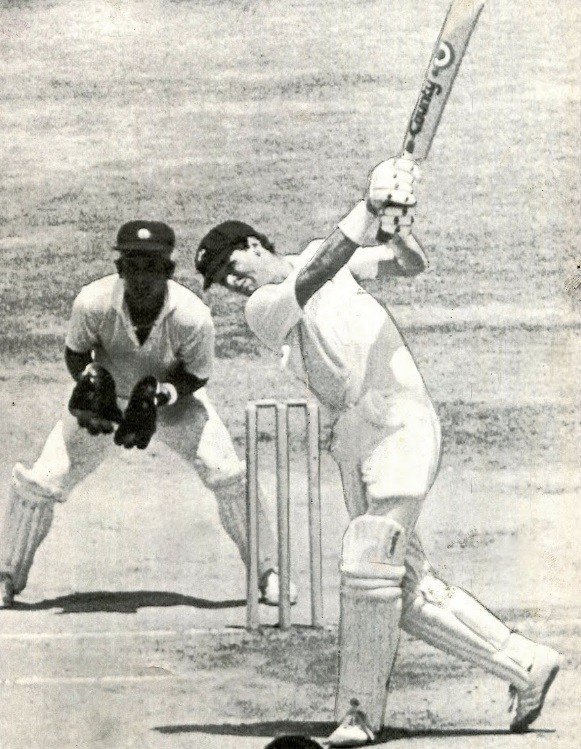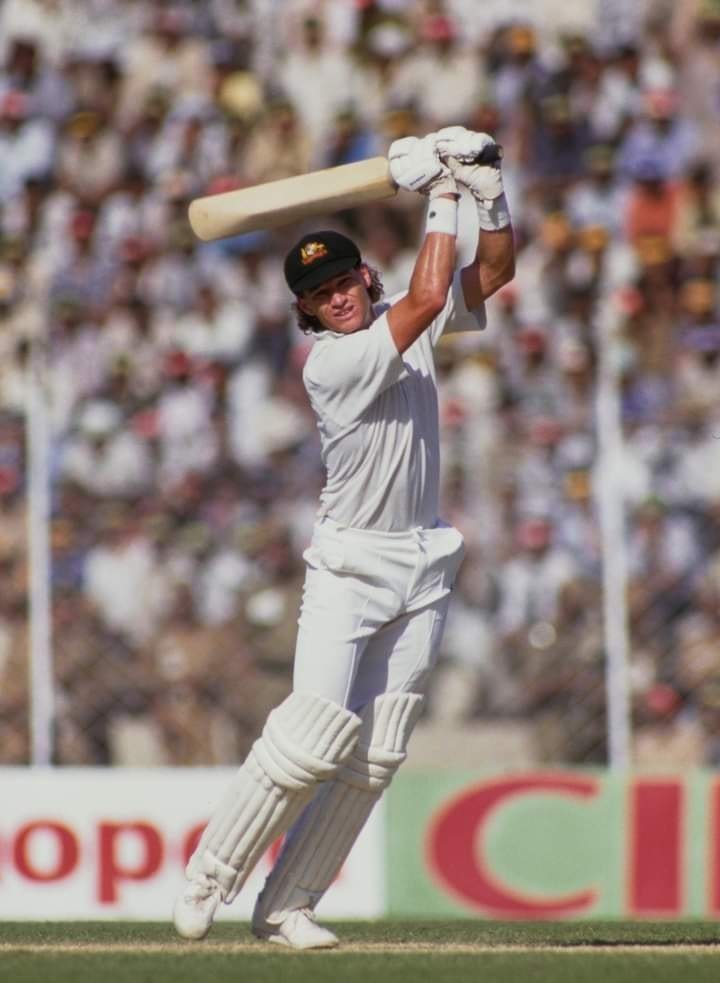In 1986, a ‘Weak Victorian’ called Dean Jones went ahead and decided to take on a sub-continental cauldron. In September 1986, in the stifling heat of Madras, Dean Jones unequivocally demonstrated that he was a unique talent, long overlooked by the Australian Test selection.
Dean Jones, in his third Test match, pushed himself so far beyond the physical limits normally applied to cricket in that eight-hour, 23-minute innings of 210 that he ended up on a saline drip in the hospital. The trouble was that he chose one of the more remote venues in which to broadcast to the world what a lot of Victorians had suspected for some time—that he had the ability to become a pillar in Australia’s batting line-up.
Despite the glowing reports from India that appeared on the wires after Jones’ outstanding performance in the second-tied Test match of cricket, which Australian team coach Bob Simpson called “possibly the most courageous Test innings of all time,” Jones secretly felt he had more to show.
Now, as the Australians’ home series against England reaches its conclusion in Sydney, Jones’ remaining doubters can only stand and applaud the heroics of this 25-year-old righthander. Yesterday, Jones, who began the second day of the fifth Test on 119, reached an unbeaten 184 before England’s frustrated bowlers finally ended the Australian innings at 343. Then, unlike the one-day series in Perth, he scored successive centuries only to see his team lose. He could celebrate because the team as a whole had made a very good effort to support his own contribution.
The Australian bowlers, more lively, more accurate, and more aggressive than they have been throughout this series, had England on a wobbly base of 5-132 at stumps on the second day. The un-known off-spinner, Peter Taylor, introduced himself to Australian cricket with the day’s final two wickets, including the prize of Ian Botham.
Earlier, a lightning raid from Merv Hughes (2-30) and Bruce Reid (1-38) had England in deep trouble at 3-17 in the fifth over. Jones’ effort was just as deserving of a double century as it had been in Madras, but unfortunately the tail-enders, despite some unexpected gallantry from new boys Taylor (11 in 84 minutes) and Merv Hughes (16 in 116 minutes), could not hang on.

